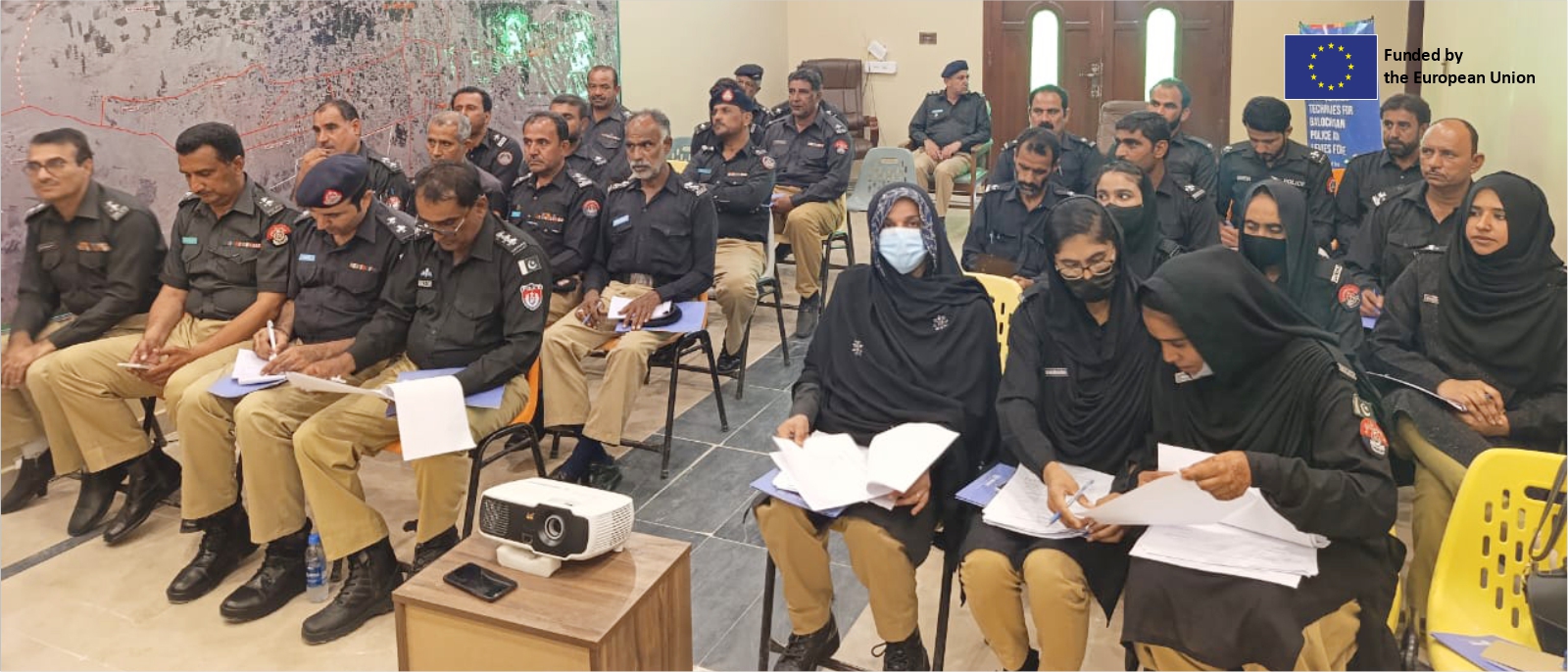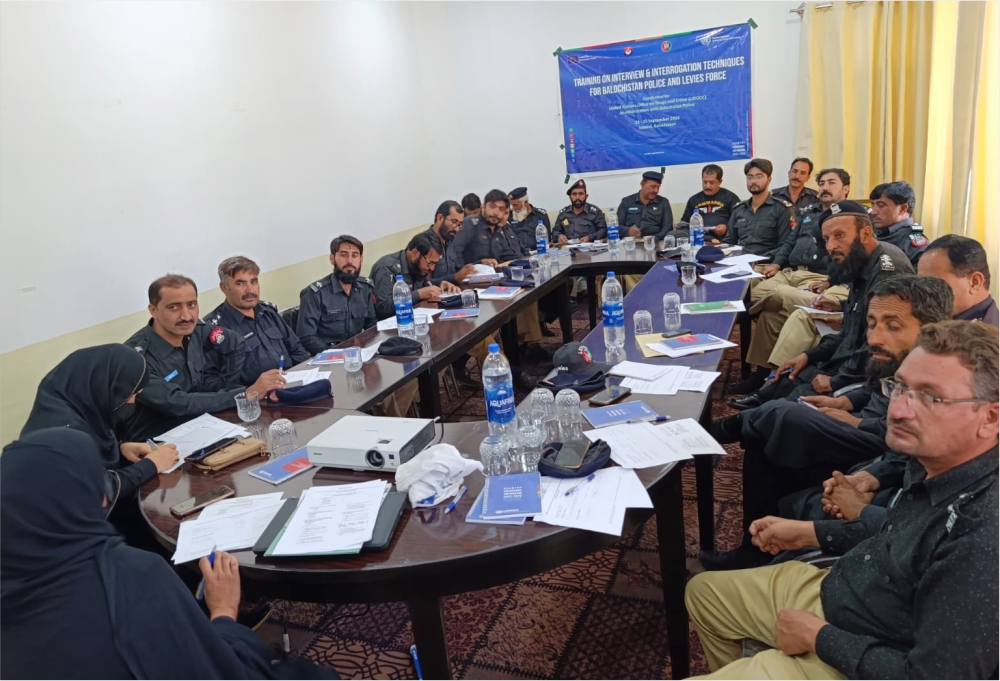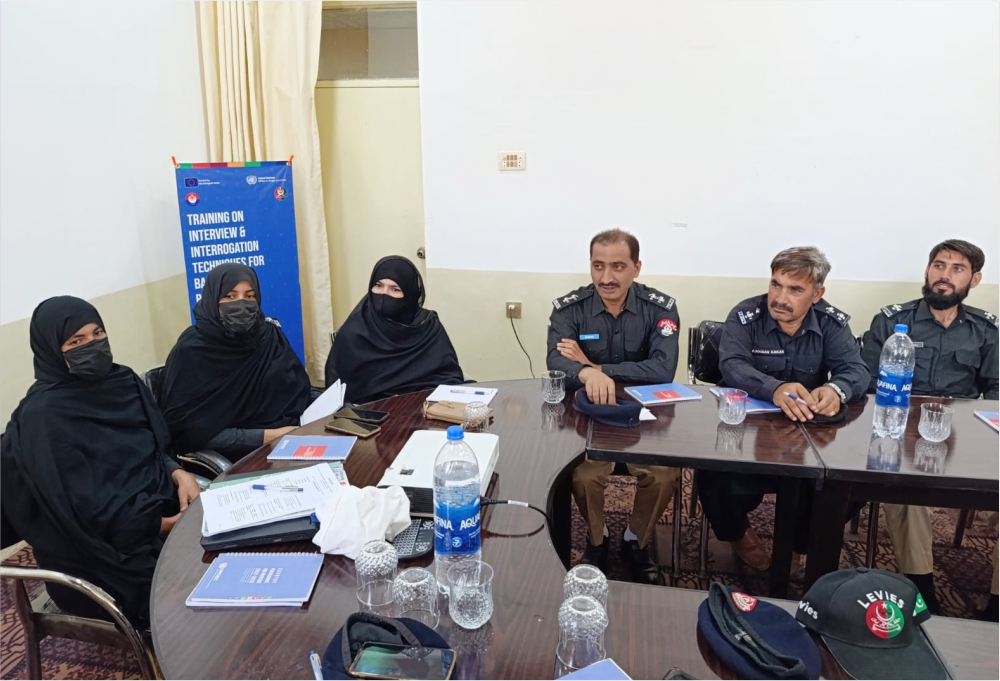
24 October 2024, Quetta - The United Nations Office on Drugs and Crime (UNODC), with funding from the European Union’s Deliver Justice Project, has successfully concluded three rounds of intensive training on interview and interrogation techniques for officers from the Balochistan Police and Levies Force. This initiative, aimed at enhancing the skills of local law enforcement, providing 83 officers, including 11 female officers, with the knowledge and tools to conduct more efficient and effective interrogations, ultimately improving the evaluation of crimes across the province.
The trainings took place over several weeks in Loralai, Khuzdar and Turbat districts of Balochistan and were specifically designed to address the unique challenges faced by law enforcement agencies in the province, focusing on the specialized role of levies force in addition to the police in Balochistan. The sessions covered a wide range of topics, from the basic principles of human psychology to advanced interrogation techniques, offering a comprehensive approach to criminal investigations. Participants were introduced to concepts such as the sociology of crime, the psychology of criminals, laying the foundation for more complex subjects like forensic psychology and interviewing different age groups and genders.
The officers also received training in the PEACE method, an internationally recognized approach to ethical interviewing. Role-play exercises were a key component of the training, allowing participants to practice their newly acquired skills in real-world scenarios under the guidance of experienced facilitators. Throughout the sessions, the officers explored crucial aspects of verbal and non-verbal communication, including the importance of body language during interrogation. Locard’s Principle, a fundamental concept in forensic science, was introduced to help officers understand the significance of trace evidence and its role in solving crimes. The training also included detailed discussions on reviewing First Information Reports (FIRs), preparing interrogation questionnaires, and conducting thorough interviews with complainants, witnesses, and suspects.


One of the standout features of this training was the participation of women officers, highlighting the commitment of UNODC and the European Union to promoting gender equality within law enforcement. The inclusion of female officers ensures that law enforcement practices in Balochistan are more inclusive and representative of the communities they serve.
The closing ceremony saw the distribution of certificates to all participants. The trainers and facilitators emphasized the importance of continuous learning and urged the officers to apply their newly acquired knowledge in their daily duties, contributing to a more efficient and fair criminal justice system in the province.
This series of trainings marks an important milestone in the ongoing efforts to strengthen law enforcement in the province. As Balochistan continues to face security challenges, the enhanced skills of these officers will play a crucial role in maintaining law and order and ensuring the safety of communities throughout the province.